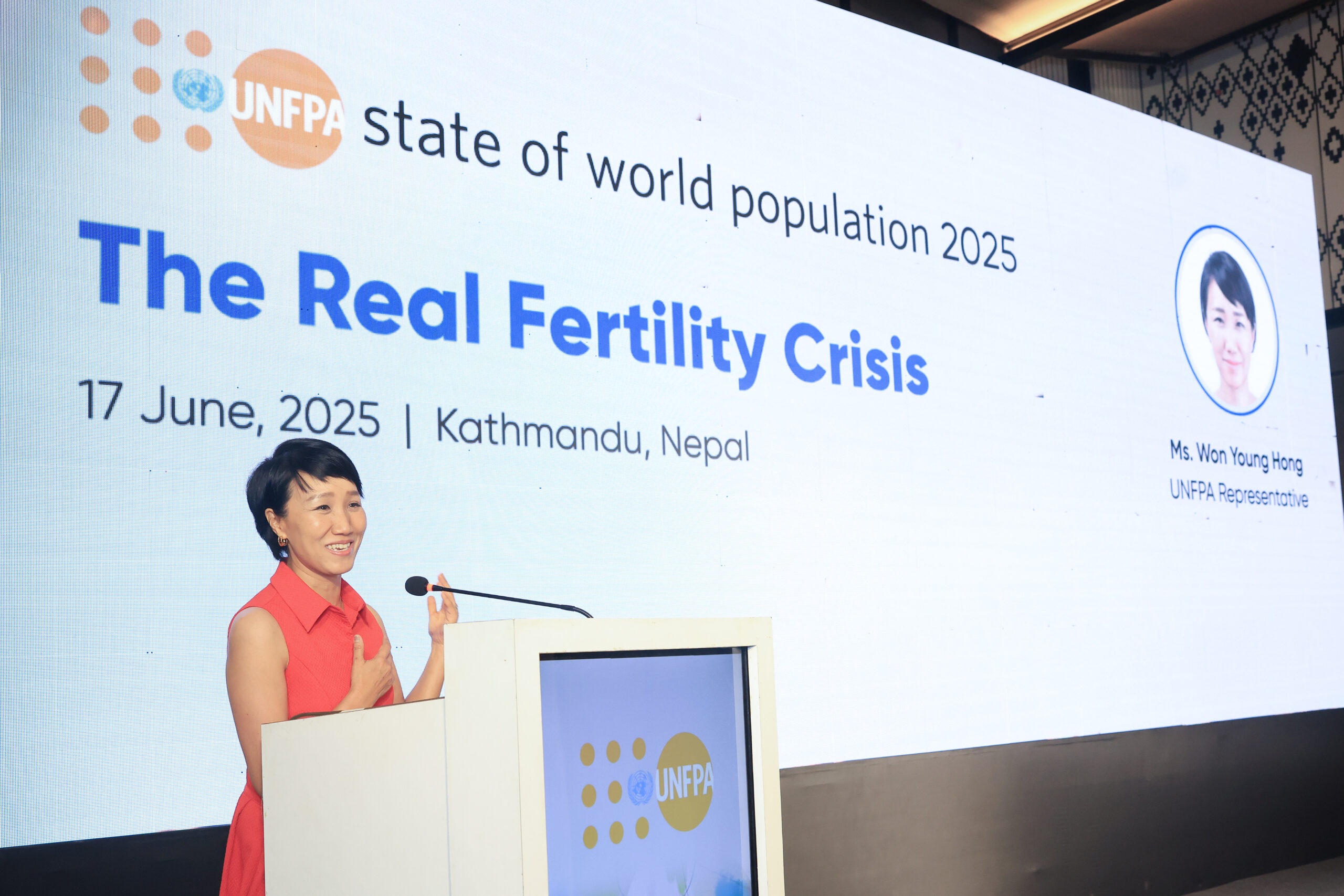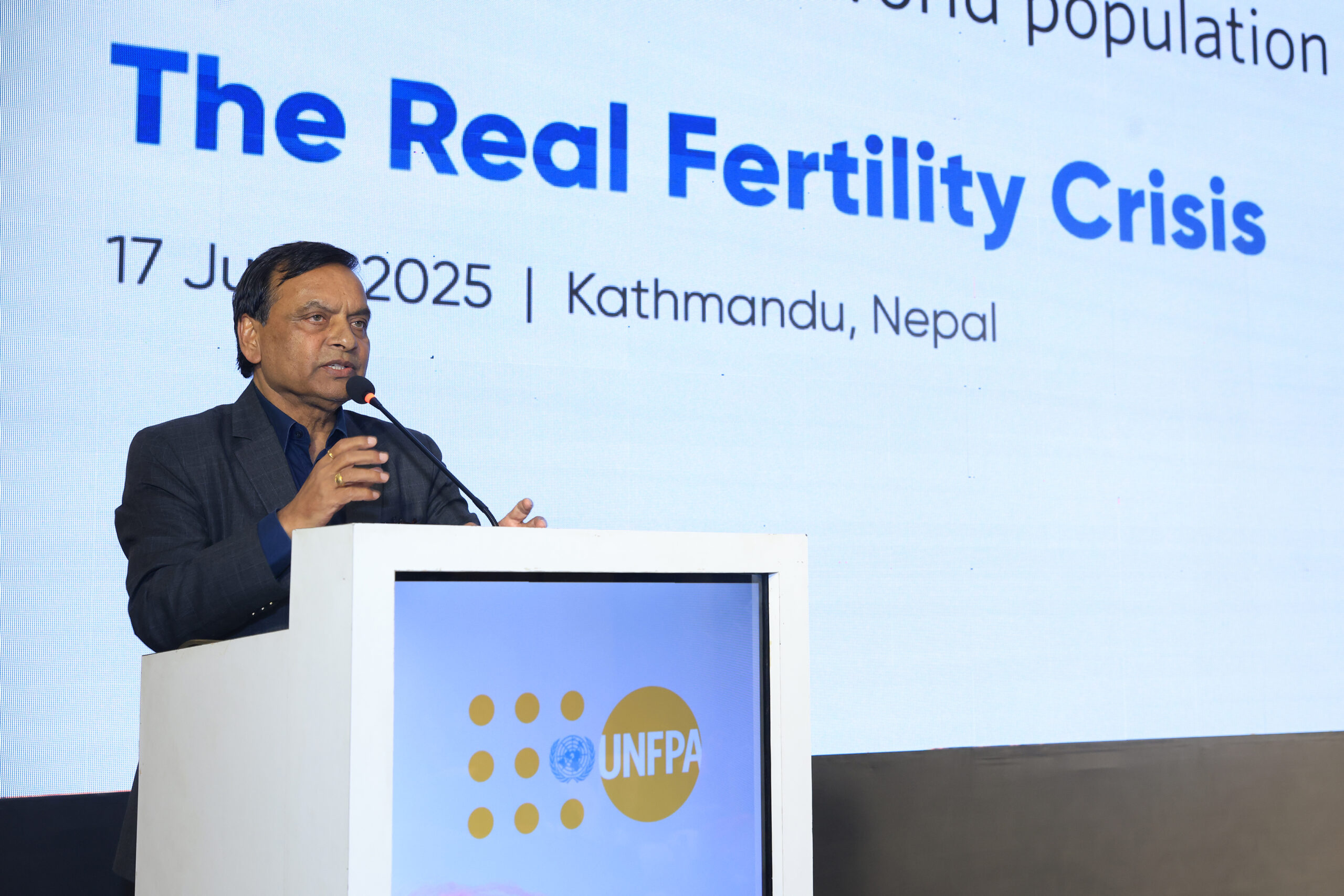Falling Birth Rates Tied to Living Costs and Lack of Family Support : UNFPA Report

Kathmandu – The United Nations Population Fund (UNFPA) has called on governments, including Nepal, to adopt supportive, rights-based policies to address demographic challenges, warning that coercive measures such as fertility targets, financial incentives, or restrictions on reproductive rights are both ineffective and risk violating fundamental human rights.
According to the central finding of UNFPA’s 2025 State of World Population (SWP) report, “The Real Fertility Crisis: The Pursuit of Reproductive Agency in a Changing World,” One out of every five adults worldwide expects not to have the number of children they want. The causes are multifaceted: high living costs, insecure jobs, unaffordable housing and childcare, a lack of a supporting partner, limited reproductive health care, and broader concerns about global crises such as climate change and conflict.
In a statement addressing the shifting demographic landscape in Nepal, where projections show that one in five people will be over the age of 60 by 2071, UNFPA emphasized that inclusive, data-driven strategies are essential to prepare for an aging population. Rather than panic-driven pronatalist approaches, the organization urged policymakers to focus on empowering individuals to realize their family aspirations on their own terms.
“Globally, vast numbers of people are unable to create the families they want,” said Won Young Hong, UNFPA Representative in Nepal. “It is the case for Nepal as well. Some people are prevented from parenthood while others are forced into it. This is not about overpopulation or declining fertility—it is about expanding choices in an enabling environment for young men and women to have the family they envision. Paid family leave, affordable reproductive health care, childcare, and supportive partners are not luxuries. They are essential.”

UNFPA recommended expanding access to affordable and high-quality reproductive health services, including fertility care, as a foundational step. It also stressed the need for investments in family-friendly policies such as paid parental leave, flexible working arrangements, and affordable childcare—measures that allow people to balance professional and personal responsibilities without sacrificing either.
UN Resident Coordinator to Nepal, Ms. Hanaa Singer-Hamdy emphasized, “We must shift from anxiety about fertility rates to empowering individual agency. People need economic security, rights-based policies, and freedom of choice, not coercive measures.”
Dilliram Sharma, Secretary of the Ministry of Health and Population, has called for the removal of structural barriers to reproductive rights. Professor Dr. R.P. Bichha of the National Planning Commission emphasized the significance of population dynamics in developing inclusive and productivity-driven policies.

The report further called for the removal of legal barriers that limit access to contraception or reinforce gender-based discrimination, and highlighted the importance of providing comprehensive sexuality education across all life stages. Such education, UNFPA stated, helps build fertility awareness and counters widespread misinformation.
As Nepal faces pressing demographic shifts, UNFPA reaffirmed its commitment to working closely with the Government of Nepal in developing policies that safeguard reproductive rights and promote gender equality.
